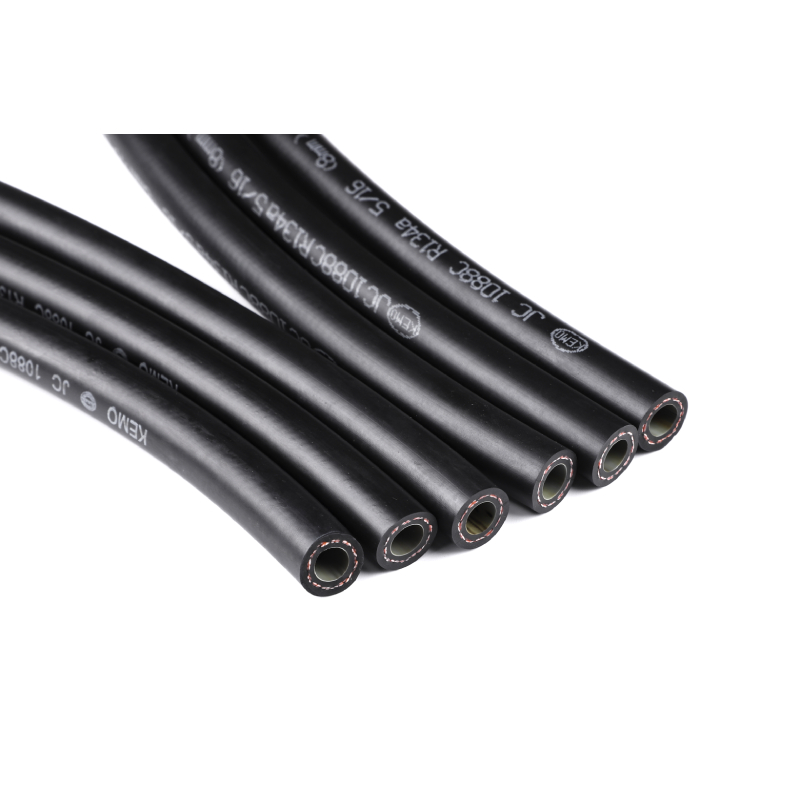Understanding the Role and Functionality of Oil Cooler Pipes in Engine Performance and Efficiency
sie . 09, 2024 03:00 Back to list
Understanding the Role and Functionality of Oil Cooler Pipes in Engine Performance and Efficiency
Understanding Oil Cooler Pipes Importance, Functionality, and Maintenance
Oil cooler pipes play a vital role in the overall functioning and efficiency of an engine, particularly in high-performance vehicles and machinery. These components are part of a larger system designed to manage the temperature of engine oil, ensuring optimal performance and longevity of the engine. In this article, we will delve into the significance of oil cooler pipes, how they function, and tips for their maintenance to ensure your vehicle operates smoothly.
The Significance of Oil Cooler Pipes
An oil cooler pipe connects the engine's oil cooler to the engine itself, allowing for the circulation of oil between these two components. The primary purpose of oil cooler pipes is to transport engine oil to the cooler, where it is subjected to a cooling process before being recirculated back into the engine. This cooling mechanism is crucial because engine oil that operates at high temperatures can degrade rapidly, losing its ability to lubricate and protect engine components. Consequently, maintaining the proper temperature of the engine oil is essential for maximizing engine performance, fuel efficiency, and overall reliability.
How Oil Cooler Pipes Work
When engine oil circulates through the engine, it absorbs heat generated from friction and combustion. As the oil temperature rises, it becomes less viscous, reducing its effectiveness in protecting engine components. The oil cooler, aided by the oil cooler pipes, serves as a radiator for the oil. The flow of oil through the cooler allows heat to dissipate into the surrounding air or coolant, resulting in a more stable oil temperature.
Typically, oil cooler pipes are made from durable materials that can withstand high temperatures and pressures, such as aluminum or reinforced rubber
. They are designed to be resistant to corrosion and wear, ensuring a long-lasting performance. Understanding the flow dynamics within these pipes is also crucial; the design must facilitate efficient oil movement while minimizing restrictions that could lead to cooler inefficiencies.Signs of Oil Cooler Pipe Issues
oil cooler pipe

As with any automotive component, oil cooler pipes are susceptible to wear and tear over time. Some common signs that may indicate issues include
1. Oil Leaks If you notice oil puddles or spots under your vehicle, it could suggest a breach in one of the pipes. 2. Overheating An engine that frequently overheats may be struggling with oil circulation, potentially due to a clogged or damaged oil cooler pipe. 3. Strange Noises Unusual sounds from the engine may indicate insufficient lubrication caused by oil flow restrictions. 4. Oil Pressure Warning Light If your vehicle's dashboard warning light for oil pressure illuminates, it may signify that the oil cooler system is malfunctioning.
Maintenance Tips for Oil Cooler Pipes
Proper maintenance can help extend the life of oil cooler pipes and ensure optimal engine performance. Here are some practical tips for maintaining these components
- Regular Inspections Periodically check for signs of wear, leakage, or damage. Early detection can save significant repair costs. - Keep the System Clean Ensure that the oil cooler and pipes are free from debris and buildup. Contaminants can restrict oil flow and reduce cooling efficiency. - Use High-Quality Oil Selecting the right grade of engine oil is essential. High-quality synthetic oils can offer better thermal stability and performance under extreme conditions. - Professional Servicing For more complex inspections and repairs, seek the expertise of a certified mechanic. They can offer comprehensive diagnostics and ensure that all components of the oil cooling system are functioning properly.
Conclusion
Oil cooler pipes are a critical component in maintaining engine performance and longevity. By understanding their importance, how they function, and implementing regular maintenance, vehicle owners can ensure that their engines remain in peak condition. This not only enhances the driving experience but also contributes to the long-term reliability of the vehicle.
